“Highly toxic and carcinogenic”: Anapa residents' fears as oil spill clean-up stalls
Most beaches in the popular Russian seaside resort of Anapa are closed this summer, as deadlines keep slipping to remove huge mountains of oil-polluted sand from a temporary dump in a nearby village.
By Nataliya Zotova, Yaroslava Kiryukhina.
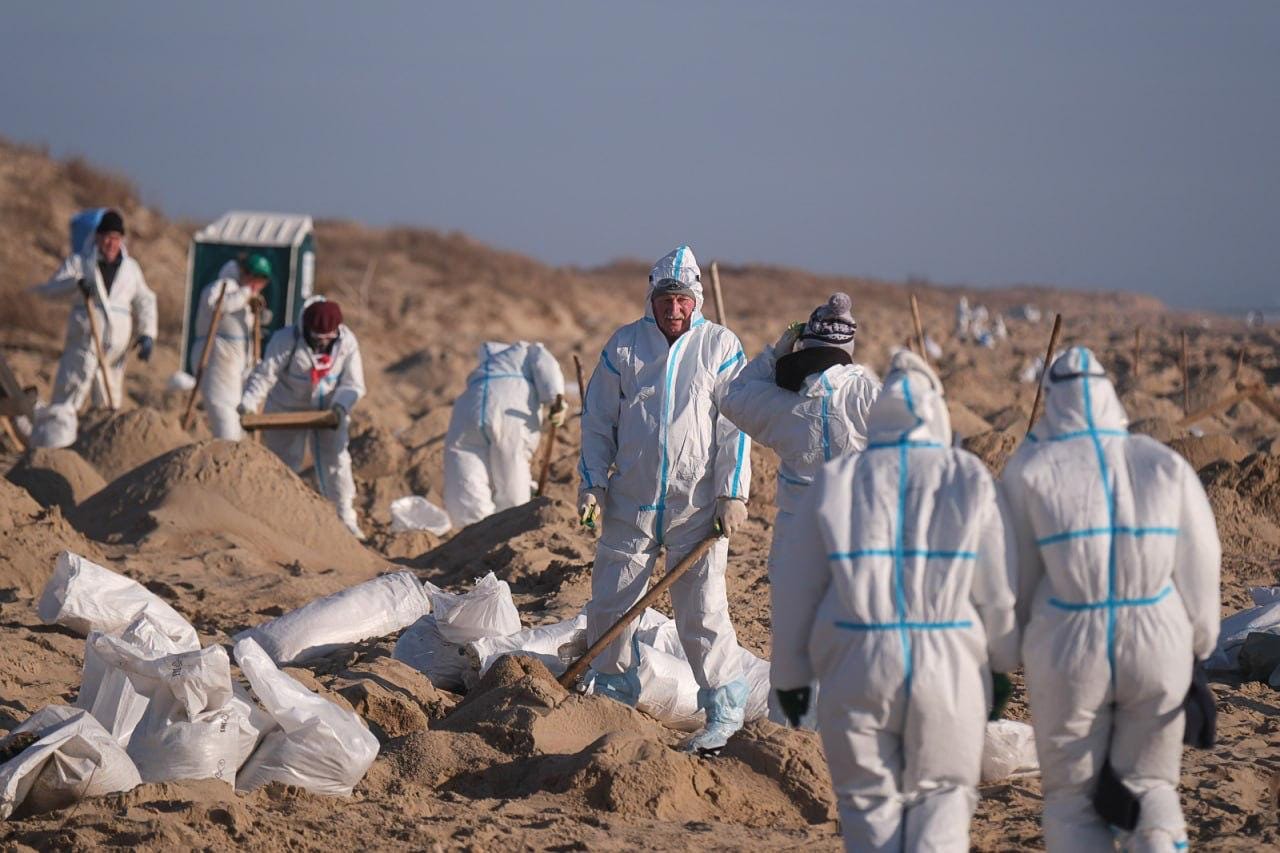
Six months on from a massive oil spill in the Kerch Strait, people living along the Azov and Black Sea coasts are continuing to suffer the consequences. In the Russian resort town of Anapa more than 160,000 tonnes of toxic sludge have been cleared from its famous long sandy beaches. But much of it has been dumped at unprotected sites away from the coast, where local people fear it now poses a risk to their health.
In an industrial estate in the village of Voskresenksy, on the outskirts of Anapa, huge piles of contaminated sand tower over the low-rise buildings and private houses nearby. Some are covered with plastic, others are left exposed to the wind and rain. A smell of petrol hangs in the air.

It’s been like this since December last year when a collision between two oil tankers in the Kerch Strait sent 5000 tonnes of heavy M100-grade fuel oil spilling into the sea. The accident caused a 25km oil slick which was visible from space. One Russian scientist dubbed it ‘the biggest environmental catastrophe of the 21st century’.
As a massive clean-up operation began along the Black and Azov sea coastlines, the Krasnodar authorities decided to use Voskresensky as a temporary dump for the sludge and sand removed from Anapa’s beaches. The plan was to send the sand on to other sites for permanent safe disposal.
But six months on it’s still there, and lorries continue to come and go from the site sometimes removing some of the sand and then bringing in new loads from the ongoing operation to clean both the beaches and the seabed.
Dmitry, who lives nearby with his wife and three children, has been watching the sand mountains with increasing concern. He moved to Voskresensky from Siberia two years, but the family’s dream of a new life in the sun has not turned out as planned:
“My wife wanted to live near the sea so we could easily go swimming,” he says. “So the kids could grow up by the sea and breathe clean sea air. And now we’re stuck with this oil situation.”
Dmitry says that his kids have been suffering from coughs and runny noses for months. He can’t prove the sand dump is the reason but worries that the constant toxic smell in the air is not doing them any good.
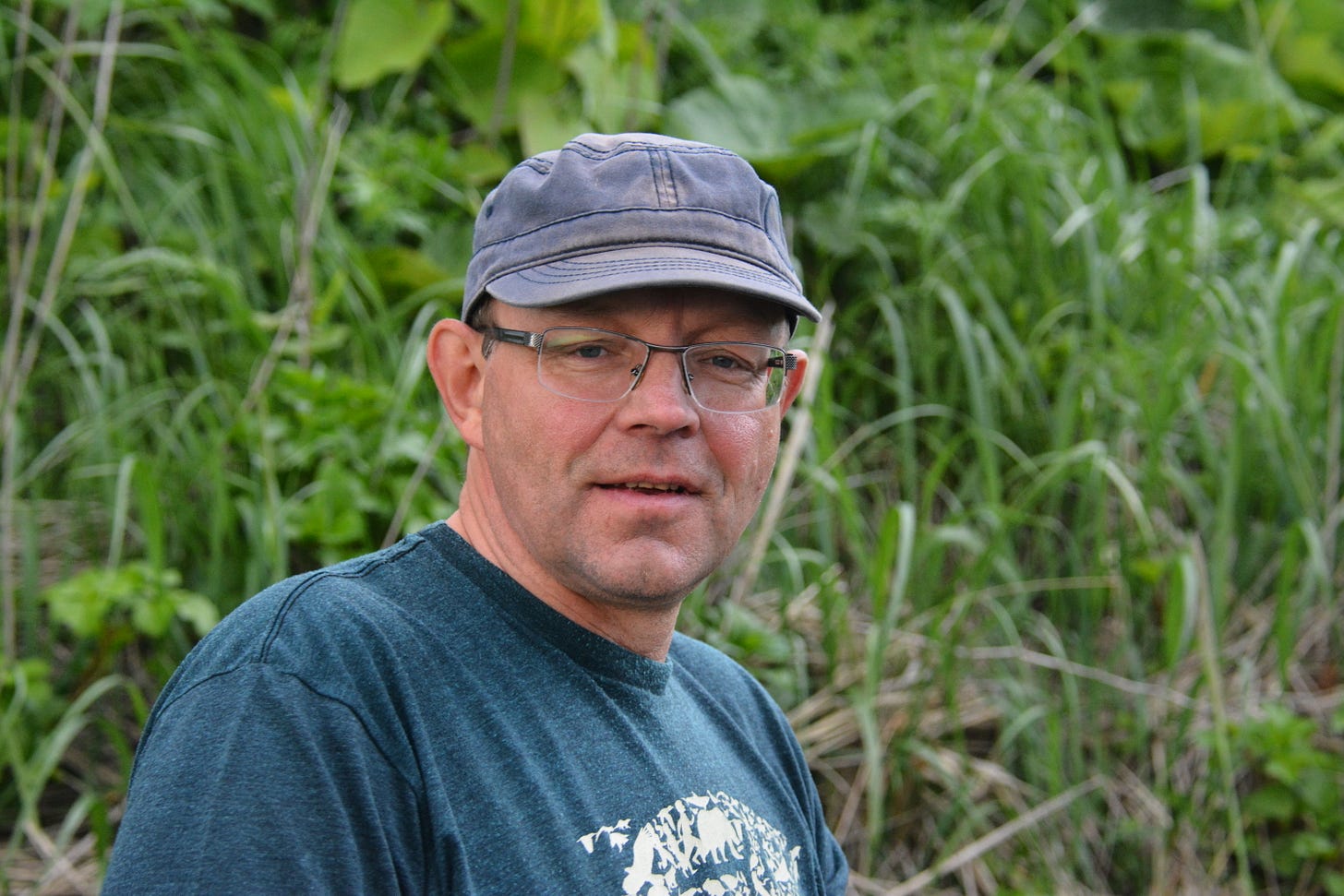
“That smell comes from polycyclic aromatic hydrocarbons,” explains Dmitry Lisitsyn, a researcher.
“These are highly toxic, carcinogenic substances that can quickly lead to serious illnesses, including cancer. There are also other harmful compounds that evaporate without any smell.”
Lisitsyn says normal practice for safely disposing of waste of this kind would be to assemble pre-fab shelters to secure the sand temporarily, while what he describes as a ‘more legally compliant’ location could be found.
But the sand in Voskresensky remains largely uncovered, and as the summer temperatures rise, residents worry about what toxins might be seeping into the atmosphere.
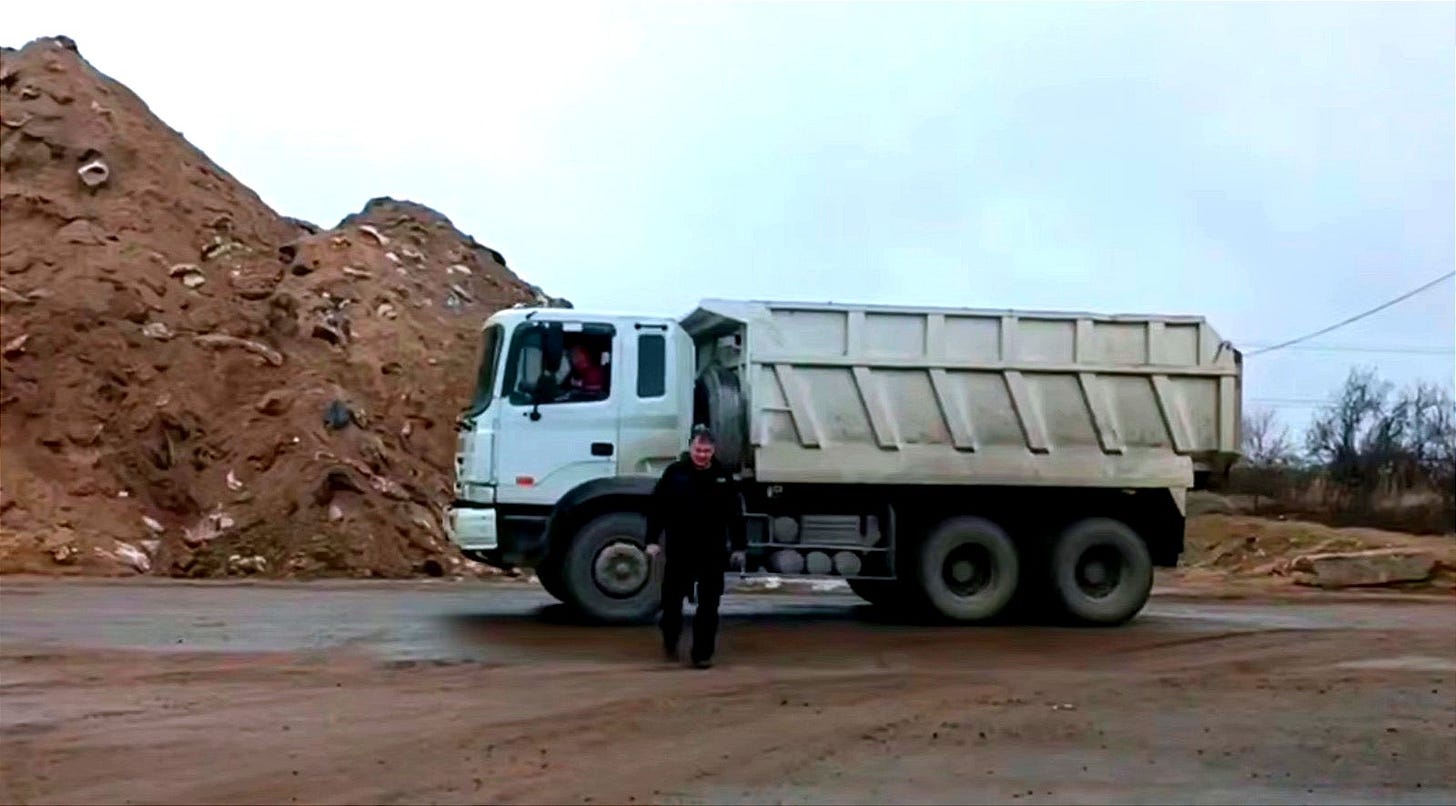
Dmitry’s neighbour Ksenia (not her real name) been trying without success to get the public health and consumer watchdog Rospotrebnadzor to provide some information on safety levels.
“They just say everything is fine,” she told the BBC. “But I think the [toxic levels] are off the charts. Everyone’s sick in Voskresensky. I start coughing every time I come back from the dump.”
Ksenia has been lobbying the local authorities to do something about the sand dump.
She says the industrial estate should never have been used in the first place because it is designated as a warehouse zone and cannot legally be used to store hazardous waste. The BBC checked with the local land registry and confirmed that this is the case. But so far this hasn’t changed the situation on the ground.
So what’s gone wrong?
The BBC has established that six specialist local companies have won multi-million rouble contracts to carry out the disposal of all the contaminated sand being cleared from the coast in Krasnodar and Rostov regions.
Nine sites have been identified where the sand can either be safely buried, or treated and processed for future use in construction and road-building.
In January, the biggest company involved in the disposal work – Rostov-based Yuzhny Gorod - faced a huge public backlash when it tried to start transporting 52 thousand tonnes of contaminated sand from Voskresensky to a landfilll site in the town of Semikarakorsk in neighbouring Rostov region.

Local people organised protests, the regional governor got involved, and there were even video appeals to President Putin. After a stand-off lasting several months, the company was forced to back down, the sand was sent back down the chain to another site causing the whole process to back up.
Dmitry Lisitsyn says even though the technology is available to make toxic oil waste safe, it’s often not used because it is expensive. So everything depends on the willingness of the local population to take a stand. “In some places, active citizens push back, and things get reversed,” he told the BBC. “Elsewhere, people are neutralized or apathetic.”
In Semikarakorsk locals held round the clock pickets of the landfill site. One person risked prosecution for organising an unsanctioned protest rally, and another for blocking access to the waste dump with her car.
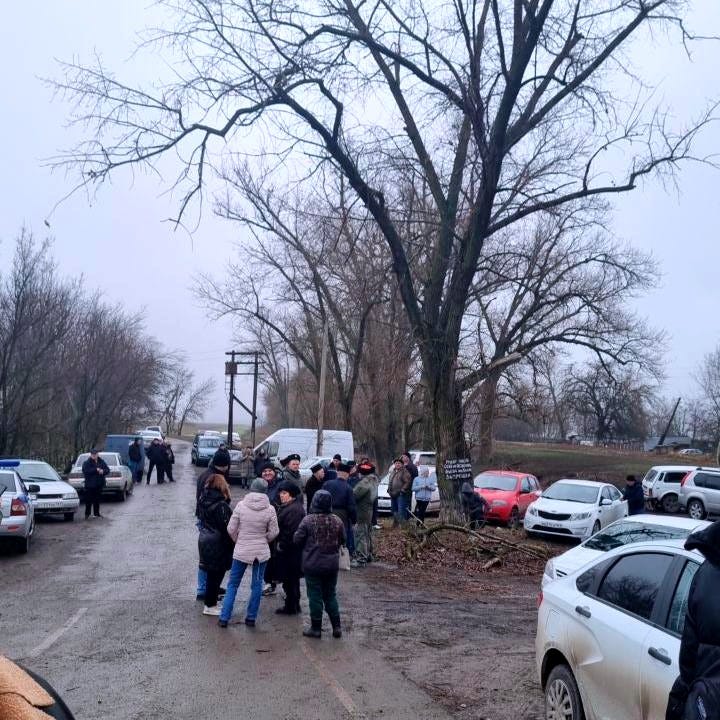
The protestors discovered that the company was also using the landfill site to dump other hazardous chemical. As a result Yuzhny Gorod is now being prosecuted and the landfill site has been closed. BBC Russian has contacted the company several times, but they have declined to comment.
There’s no suggestion the other companies involved in the Krasnodar clear up have similarly cut corners, and they all declined the BBC’s offer to comment.
However, Dmitry Lisitsyn says the rules governing toxic waste disposal in Russia are not strictly enforced, meaning that it’s common for companies just ignore them.
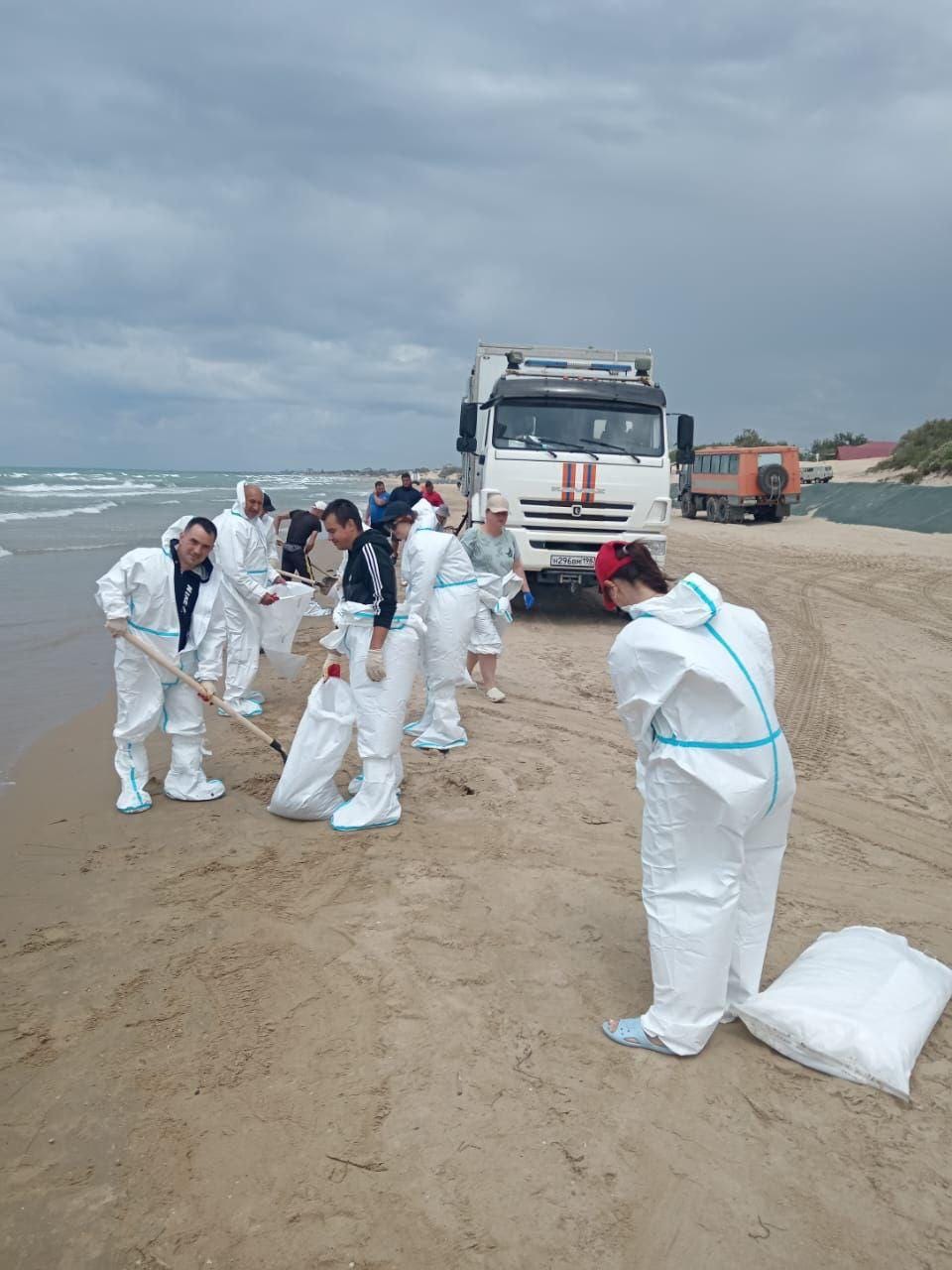
“On Sakhalin, companies have proper technology but they often don’t bother using it,” he told the BBC. “They just create dumps, which is easier. Large oil firms pay small companies to handle waste and all associated risks. There’s a lack of government oversight to prevent profit-driven abuse.”
Back in Anapa, the beaches are closed, and volunteers are patrolling to make sure holiday makers keep away from the water. For Dmitry and his family there’s no prospect of going swimming safely this summer. Instead, he’s taking photos of the sand dumps to record what’s happening.
The Krasnodar operational headquarters Telegram site reports that no more oil has been washed up since 27 May, but work is continuing to monitor the beaches and to clear oil deposits from the seabed.
The BBC asked the Krasnodar authorities when the Voskresenky site is finally going to be cleared. We have not received a reply.
Meanwhile, other sources have reported various possible – and conflicting - time-frames.
The Krasnodar operational headquarters Telegram channel says the latest deadline is for all the sand to be gone by mid-July.
But local media quoted the Krasnodar region minister for emergency situations as saying the Voskresensky site would not be cleared ‘before the end of the year’.
So for now, Ksenia says she will be carrying on campaigning.
Read this story in Russian here.
English version edited by Jenny Norton.





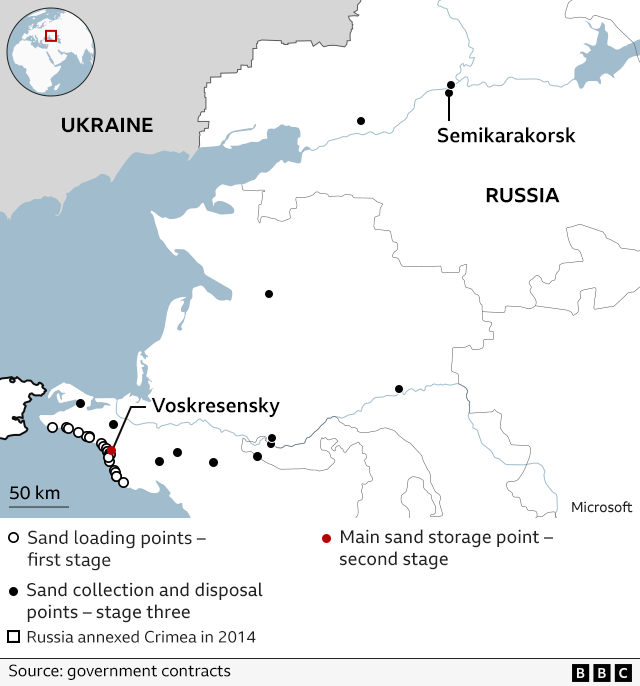
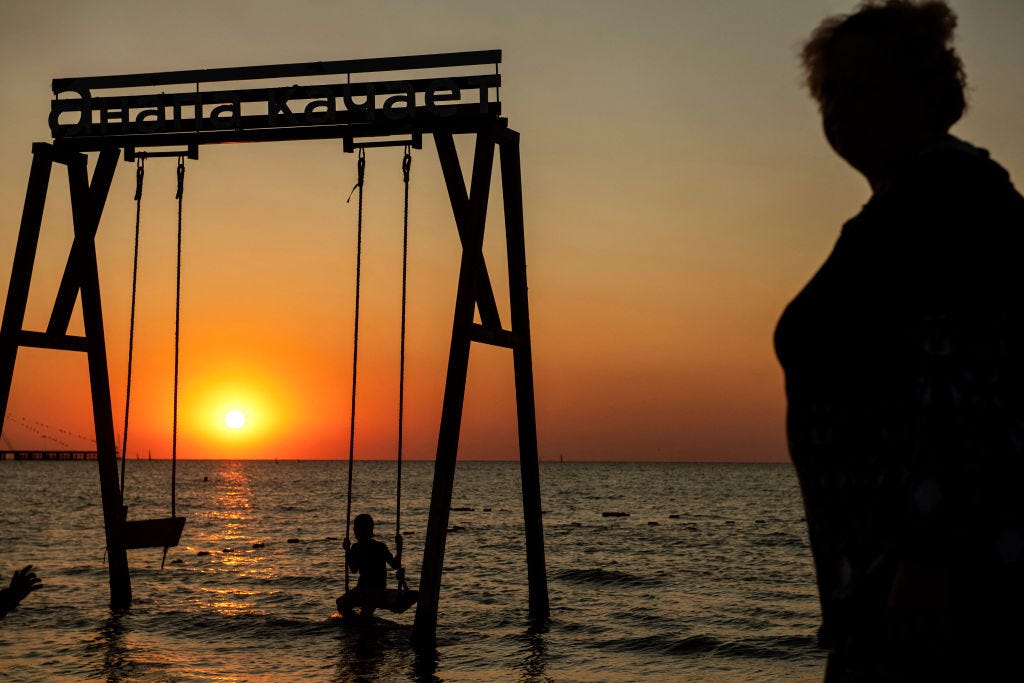
Great report. Lack of accountability and rule of law. Corruption. Appeals to the tsar. Classic stuff. Sad for the sea life, though.